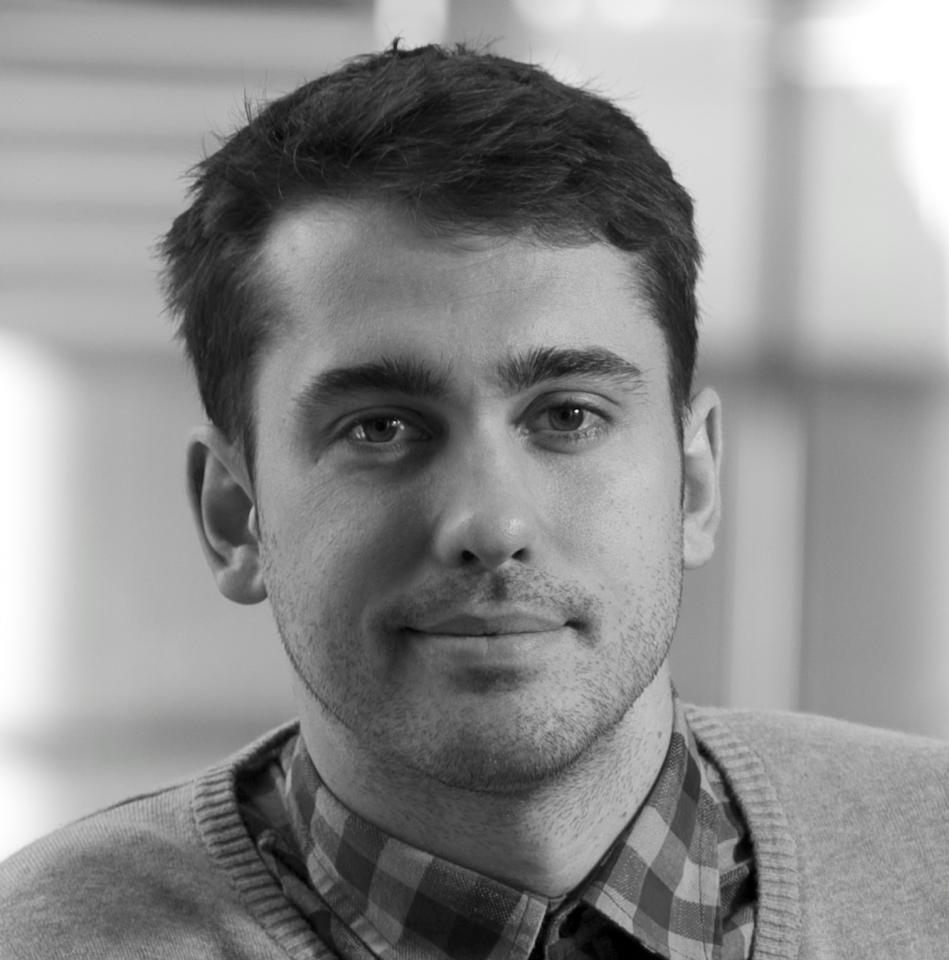
What inspired your decision to study?
I have always been curious about organisations and how they function. I always knew I wanted to study business after high school.
Initially I thought that after my degree I would do a masters degree and head off into a graduate program at a large multinational, or something like that. Then in the third year we had a course on industrial organisation and strategy. The tutor, Phil Crowley, had the rare ability to wrestle abstract ideas into fascinating real world applications.
His class showed me that academic theory could be useful. Without it, I can't imagine that I would be working in academia today.
How did you end up doing a PhD?
I stayed on to do an honours degree but it proved to be one of my most stressful years, and I just wanted to get out into the world. However after that I did some lecturing which reinforced my view that I loved teaching and research. Then I met UQ Business School academics John Steen and Tim Kastelle who had a project starting with a company in Denmark. And that’s how I decided to go for a PhD.
The subject was basically how people in big organisations find information to solve their problems. I studied how they used their social networks (not social media!) to find solutions to the technical problems of organisational life. Unfortunately for internal reasons, the company stopped the project a year after it started. It was tough but I then discovered a new project at a large mining company and shifted my research over to this new context. I graduated in 2012.
What were your key findings?
Most of the time people seek knowledge from those in similar roles but competition between these very same people, whether it be for budget or personal status, often causes delays in sharing best practice. Competition cannot ever be eliminated (and even if it could, you wouldn’t want to because it’s an important source of innovation), but it can be tempered. I found that the most effective way of doing this was to invest in building thick relationships between that spanned different mine site and enabled patterns of trust and reciprocal exchange to emerge. One of the ways the mining company tried to encourage this way by organising regular inter-site meetings between important technical personnel who were working in similar roles. These meetings helped turbocharge the sharing of best practice.
What’s your most positive memory of your time at UQ Business School?
The times I spent at the old UQ Staff and Post-Graduates Club. It was a fantastic location for meeting people from across the university. It's a terrible shame that it was closed down.
What key piece of advice would you recommend to a PhD student?
Anticipate the risks involved. Based on my own experience, I would recommend choosing multiple organisations rather than a single case study. It worked out well in the end but it was stressful having to find another company part-way through my research.
What’s your current role?
I am now a post-doctoral researcher at Imperial College London and my research is focused on the management of innovation in large projects. The £15 billion Crossrail project which I am working on is Europe’s largest infrastructure project and will create the first wide gauge railway under London. The first train will run in 2018.
When I first began my research, I did a lot of work explaining how other companies manage innovation and what Crossrail could learn from this. The main piece of research I am currently doing is examining the social strategies that people use to successfully transfer innovation across the organizational boundaries that define mega-projects like Crossrail.
Because Crossrail is such a big project, no one has worked on the entire project. Sharing knowledge and innovation within one firm is hard enough, but when you have to do that through dozens of different firms, it is a real challenge.
What are your future plans?
I expect to finish the project in 2015 and I’d then love to return to Australia in an academic role. It would be great to get more involved in the teaching of innovation, strategy and organisational design.
What do you like best about your experience overseas?
London is at the hub of things – it’s a very cosmopolitan city. I am working with colleagues from all over the world and I have met some great people. I also enjoy the public transport, the beer and the fact that there’s always something happening. At the Imperial College in particular, there is a very good interconnectivity between researchers here and around the world. We have bi-monthly research seminars with visiting academics, so you feel like you’re always connected to the forefront of your field of research.
UQ Business School’s tagline is ‘Challenging the future’. For you, what will be the most challenging business topic in the next ten years?
The digital disruption of existing business models. We're already starting to see the commercial application of technologies like 3D printing and virtual reality. These technologies have the potential to drastically reconfigure the existing architecture of production in industries as diverse as plastic surgery (e.g. printing a new jaw bone for transplant) and universities (e.g. Massive Open Online Courses: MOOCs). More and more of these digital technologies will enter the mainstream over the next ten years. Understanding how to adapt your business model will be one of the greatest business challenges.
Want to have the spotlight in the next Alumni e-news? We'd love to hear what you've been up to since graduating from UQ Business School. Share your story with us.



